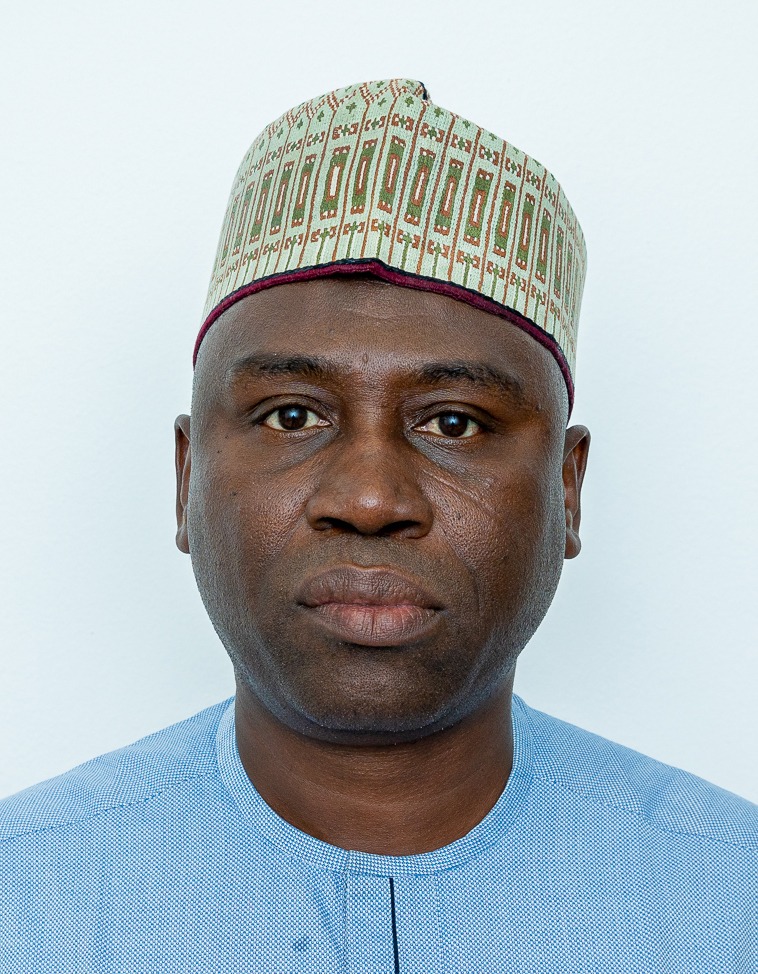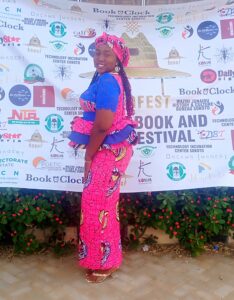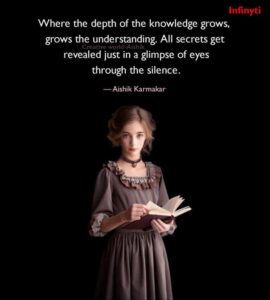A Conversation with Mr. Suleiman Haruna An award winning Author, Poet and the Director of Information to the First Lady of Nigeria
Gotname: What is the most difficult part of your artistic process especially as an African and Nigerian?
Mr. Suleiman: I prefer to see my work first as a means of expression and second as a catharsis. I derive joy when I adequately express myself through my work, and I find relief from my pain when I write. So, to me, there is no difficulty because I don’t write to be appreciated and I don’t write for benefits, at all.
Gotname: Does your family support your career as a writer? If not how did you convincece them?
Mr. Suleiman: I started out as a songwriter when I was in secondary school, I used to produce rhymes for instrumental music and I even had a book of the songs I wrote. At a point however, an elder brother saw it and scolded me and I had to go underground. Eventually, because I didn’t have a music player that I can use privately, I abandoned the practice and began writing without the music; thus was born my poetic phase. Even when I got married, I was writing poems, short stories and features on the problems of society, my wife thought I should make better use of my time because she didn’t see any pecuniary gains. It is difficult to convince anyone to love what you love.
Gotname: If you had to do something differently as a child or teenager to become a better writer as an adult, what would you do?
Mr. Suleiman: I was lucky, I had all the background I needed, I watched television when I was young, I watched news, documentaries, action movies and I read any book that came my way. I remember my father bought me a copy of ‘The undesirable element’ a novel by Muhammed Sule when I was in primary school. I didn’t plan to be a writer, but I had always wanted to be a journalist. I inherited a boxful of books from my elder brother who had all of the classics used at school. I still have some of them, the old man and the sea, tales by Shakespeare, Rasselas, prince of Abyssinia and many books on poetry and drama. So I can not complain.
Gotname: How long on average does it take you to write a book and what inspire you?
Mr. Suleiman: Depends on what you are writing about. I have written a book that took me five years and I’ve written another in three months. These are research works, for works of prose and poetry, they may take as long as necessary. Remember I said there are no pecuniary expectations. I have never sold any of my books.
Gotname: How many unpublished and half-finished books do you have?
Mr. Superman: I have four published books and many more unpublished. I have also supported other writers to either enrich or complete their works.
Gotname: What does literary success look like to you?
Mr. Suleiman: I have no personal definition for literary success for myself but I have to admit that for some writers, money and fame comes, in Nigeria for example, in the trail of Maya Angelou, we have many poets making money through recitals, or as they call it today – ‘The spoken word’. People like Dike Chukwumerije and Maryam Bukar Hassan. People pay them to watch their work. Also, remember that many theatres are now springing up and asking for interesting plays. Others are also writing prose or poetry for podcasts.
Gotname: What’s the best way to market your books?
Mr. Suleiman: Go online. Use platforms like Kindle, beyond selling your work, you can also sell your writing skills.
Gotname: Do you view writing as a kind of spiritual practice?
Mr. Suleiman: To me it is, that is why the happiness I derive from my work is my gain. Anything that changes your inner construction especially diluting sadness and pain and promoting joy and happiness, is profound to your consciousness and you find yourself redirecting yourself to it at all times. Whenever you are in a deep hole, it is the rope that you hold to escape.
Gotname: Do you believe in the “Woman”?
Mr. Suleiman: I do. ‘the woman’ is all around me. I believe the woman is weak but strong; in her weak state, she needs to be protected, and in her strong state she needs to be supported. I work with women in the last 6 years and come to appreciate them the more. I am moved by gender-based insensibilities and I act if I have to. The fact that women are the only portal of procreation gives them a special place in the world.
Gotname: What word do you have for the traumatized?
Mr. Suleiman: I work in the humanitarian sector too and am involved with improving the life of the disadvantaged – either socially or economically underprivileged, or those who have been abused or violated in person or in status. The ideal message to this category of people is that they should chin up. Humanity is still in vogue, they will be protected and supported, but only if they voice out their pain.
Gotname: How can a writer inspire change in Nigeria?
Mr. Suleiman: I am a living example. Most of the things that I wrote about, I had a chance to input them while drafting speeches for various categories of dignitaries and they have come out as directives for action or advocacies for action. For those who find themselves in offices where they can implement, they have the best opportunity of actualizing their dreams. So, first thing is to put down your thoughts; it will serve as stage one for any development endeavor. You never know who might read it.
Gotname: How many hours a day do you write?
Mr. Suleiman: My whole day is spent either reading or writing.
Gotname: Have you read anything that made you think differently about fiction?
Mr. Suleiman: No. I like fiction as well as non-fiction. I have worked to fictionize non-fiction in the area of history and culture.
Gotname: What are the ethics of writing about historical figures?
Mr. Suleiman: Always base your work on facts. Don’t let sentiment drive you. There is a high cost to that.
Gotname: Which poem has changed your life?
Mr. Suleiman: They all did. One at a time.
Gotname: If you didn’t write, what would you do for work?
Mr. Suleiman: Talk. I have the gift of the gab as well.
Gotname: Do you read your book reviews? How do you deal with bad or good ones?
Mr. Suleiman: Reviews are personal opinions no matter how real they may look, and always remember that in academic circles, you must both support and criticize even though your slant may be obvious. I accept all reviews with equanimity.
Gotname: Do you hide any secrets in your books that only a few people will find?
Mr. Suleiman: Writers do that mostly in poetry in order to prove artistic expertise, but also hide information ‘in plain sight’ most information remain your discretion until you get to speak about your work publicly. Sometimes those who analyze your work will sense the underlying meanings and request for explanations and you may feel obliged to reveal them.
Gotname: What was your hardest scene or poem to write? Share with us about your book
Mr. Suleiman: Why novel the Park Murder story is titled ‘A twist to the tale’ gave me that challenge because it was a book on murder investigation. I had gone far in the work before I realized I knew very little about police investigations. I had to make out time to discuss with a police friend who helped.
Gotname: Share with us one of your poems
Mr. Suleiman: I wrote this while I was unemployed after my national service. When I wrote this poem, it reduced the pain that I was going through.
It’s Putrid
It is putrid
Quite noisome indeed
I can’t heed
It’s terror, I hid
Can I bid
For something else or skid
Into oblivion
Like a dead stallion
Hoboes cannot be intrepid
I’m in a quandary
Turgid offers
Tang of wage
I don’t have a mascot
And I’m no matador
Not inure
I trudge like a giant manacled
I never dreamt this trend.
Gotname: Thank you so much Sir for your time, it is such a pleasure speaking and learning from you. You are an inspiration to our generation.
Biography
Suleiman Haruna was born in Kano city in 1968 and went to Bayero University Kano and Ahmadu Bello University Zaria. I am rounding off my PhD In Development Communication. My working career has always been with the Federal Public Service in various establishments managing their communications activities since January 1992. Since 2017, I work with the First Lady of Nigeria as Director of Information. I was honoured by the Institute of Authors.
Contact 👇click click





order catapres 0.1 mg pills spiriva 9mcg cost buy generic tiotropium bromide 9 mcg
bimatoprost sale robaxin 500mg generic buy cheap desyrel
amoxicillin oral amoxicillin online buy buy biaxin 250mg generic
indocin online cefixime order buy suprax sale
order tamoxifen 10mg online buy ceftin cheap buy generic cefuroxime online
avanafil 100mg over the counter tadalafil 10mg uk voltaren canada
cleocin order purchase cleocin pills generic sildenafil
mebendazole price order generic tretinoin cream order tadalis 10mg for sale
order metronidazole 400mg for sale order keflex 125mg generic cephalexin 250mg ca
estradiol 1mg for sale minipress 1mg generic buy generic minipress
diflucan 200mg drug ampicillin 500mg tablet cipro 500mg for sale
duricef 250mg cost propecia cheap propecia 5mg ca
cialis generic name buy tadalafil 5mg without prescription order viagra 100mg generic
starlix 120mg cost capoten cost order candesartan online
bystolic online buy how to get clozaril without a prescription buy clozaril 50mg pill
purchase plavix pill fluvoxamine uk buy nizoral 200mg online cheap
oral ranitidine 300mg order celecoxib 100mg pills buy cheap generic celebrex
ketorolac tablet colcrys for sale online inderal online buy
order sumycin 500mg tetracycline generic brand baclofen 25mg
cost imitrex 25mg levofloxacin 250mg cheap dutasteride sale
crestor tablet purchase motilium sale domperidone pill
order losartan 25mg sale topamax pills buy topamax 100mg generic
xenical uk order orlistat pills buy zyloprim 300mg
order methotrexate sale methotrexate 10mg generic where can i buy reglan
buy pregabalin 75mg generic purchase loratadine pill buy dapoxetine paypal
buy lisinopril 5mg order omeprazole 10mg generic order generic lopressor 100mg
buy glucophage tablets buy glucophage generic order norvasc 10mg pill
albenza 400mg price albenza 400 mg ca buy medroxyprogesterone tablets
buy synthroid generic cheap synthroid 150mcg order levitra 10mg online cheap
tenormin 100mg pill atenolol medication letrozole 2.5 mg usa
buy monodox buy amoxiclav online cheap oral augmentin
prednisolone 10mg drug neurontin 100mg over the counter buy furosemide generic
neurontin ca furosemide sale buy doxycycline generic
buy isotretinoin generic buy amoxil medication order azithromycin 250mg pills
amoxil 500mg canada oral zithromax buy generic prednisolone
buy ivermectin 12mg buy cheap generic accutane accutane 40mg uk
order tadalafil buy generic tadalafil buy ed pills sale
buy cialis online cialis us best ed medication
where to buy letrozole without a prescription viagra mail order us viagra pills 25mg
atorvastatin sale order viagra 50mg without prescription viagra sildenafil 25mg
escitalopram tablet naltrexone usa naltrexone 50 mg ca
order cenforce 50mg without prescription chloroquine pill glycomet 1000mg canada